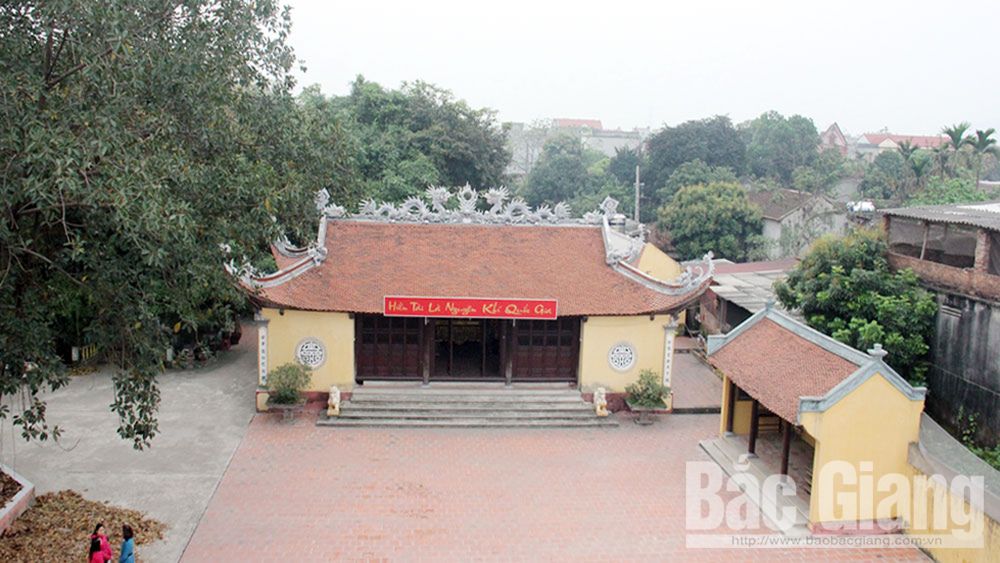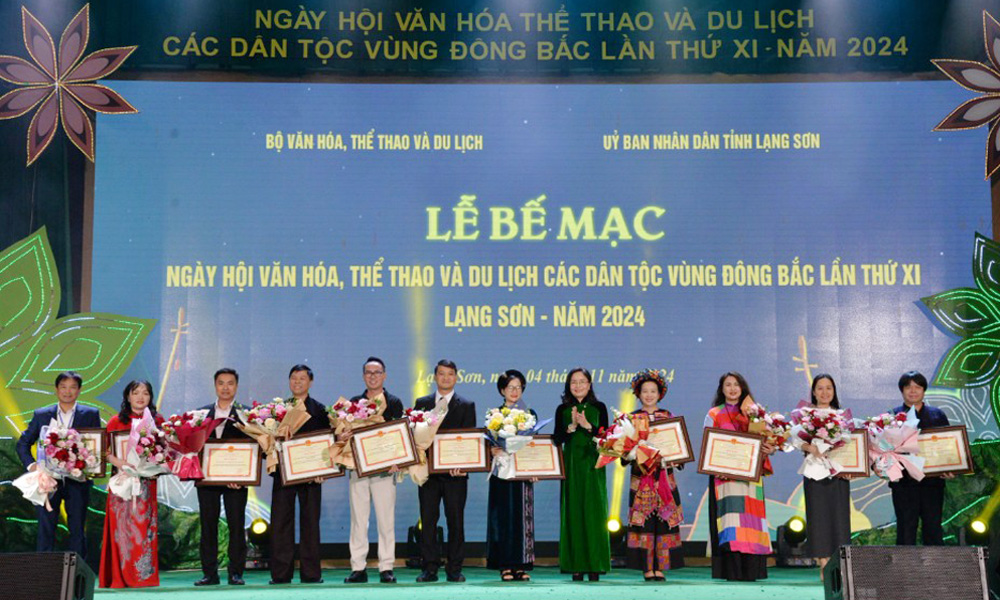Relics honour Bac Giang’s learning tradition
 |
|
The temple dedicated to 10 doctoral laureates in Nenh town (Viet Yen district). |
The first person of Bac Giang winning the royal court examination was Nguyen Viet Chat, who passed the exam in 1088 to become the first class laureate. The last winner of the examination of the feudal Confucianism was Nguyen Dinh Tuan, who won the first title (Dinh
From 1908 to 1901, Bac Giang had 58 excellent students who passed great examinations. They included four Dinh
In 27 doctoral villages in Bac Giang, there are villages with many successive generations making themselves laureates in different dynasties. Notably, Yen Ninh village,
It can be seen that in each of the Ly, Tran and Le and Nguyen dynasties, Bac Giang had the elite students who passed major examinations. Therefore, the system of Confucian relics reflecting the learning and examination-taking traditions of Bac Giang is very diverse. They are provincial, district and communal Confucian shrines, temples, steles and families’ ancestor worship houses; and places worshiping the Confucius, feudal laureates
Notably, Viet Yen district has a temple dedicated to 10 doctoral laureates in
Confucian relic sites are often not located in the center of districts but in outstanding localities with learning tradition and many laureates. The relics were built in the Le and Nguyen dynasties. Many of them, which were destroyed in the resistance war against French colonialists, have been restored to worship the scholars and honor the local learning tradition.
In the system of Confucian relics, many places still preserve the stone steles recording the names of laureates, contributing to educating the glorious academic tradition for young generations.
For example, Thai Son stele house keeps stone steles containing information on third-place laureate Hoang Sam, doctoral laureate Nguyen Le Kinh and mandarins Ngo Cong My and Ngo Cong Que. Tho Ha Confucian shrine has stone inscriptions of outstanding Confucian students and scholars in the homeland...
Recognizing the significance and important role of Confucian relics, over the past years, the province has paid much attention to investing in relic research, conservation and collection, achieving outstanding results. Dossiers on many Confucian relics have been made to seek recognition as provincial and national relics. Many relics have been preserved and restored with support from the state budget and social sources.
Bac Giang people have a tradition of fondness for learning, so honoring the learning still keeps its value. Hence, the research, conservation
Dong Ngoc Duong
 Bắc giang
Bắc giang










Reader's comments (0)